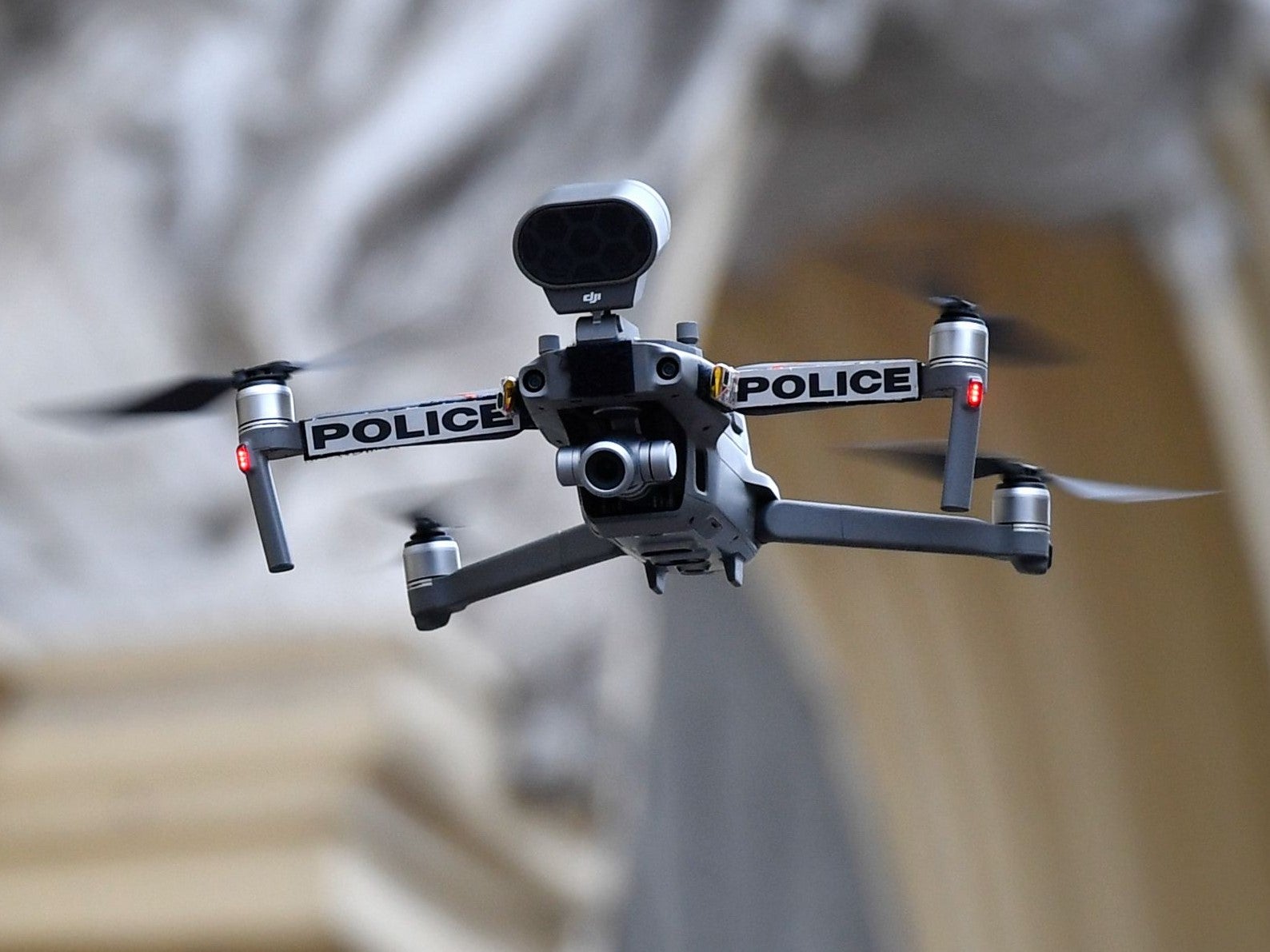France bans police drones at Paris protests
Privacy advocates describe airborne cameras as ‘Orwellian tool’ aimed at tracking individuals rather than maintaining law and order

Your support helps us to tell the story
From reproductive rights to climate change to Big Tech, The Independent is on the ground when the story is developing. Whether it's investigating the financials of Elon Musk's pro-Trump PAC or producing our latest documentary, 'The A Word', which shines a light on the American women fighting for reproductive rights, we know how important it is to parse out the facts from the messaging.
At such a critical moment in US history, we need reporters on the ground. Your donation allows us to keep sending journalists to speak to both sides of the story.
The Independent is trusted by Americans across the entire political spectrum. And unlike many other quality news outlets, we choose not to lock Americans out of our reporting and analysis with paywalls. We believe quality journalism should be available to everyone, paid for by those who can afford it.
Your support makes all the difference.Legislators in France have banned Paris police from using surveillance drones during public protests.
The Council of State, France’s highest administrative court, backed privacy rights group La Quadrature du Net (LQDN), which launched a legal case earlier this year against the police use of drones.
The case argued that police violated freedom of expression, as they used camera-equipped drones to track individuals rather than maintain law and order.
French police had ignored an initial ban which was put in place in May after drones were used in an attempt to catch people breaching Covid-19 lockdown rules.
Police continued to fly drones at protests in the capital as recently as this month, claiming that they did not breach the ban because they made use of an artificial intelligence tool that blurred people’s faces.
The latest order makes it clear that no form of drones will be allowed at protests in the future.
“The Paris Police Prefecture is ordered to cease, without delay, any drone surveillance measures for gatherings of people on public roads,” it states.
The Council of State also ordered €3,000 (£2,700) to be paid to the privacy rights group.
The ruling comes amid parliamentary discussions about a controversial security bill, which sparked protests after passing its first reading in the National Assembly last month.
Two of the most contentious parts of the draft law are article 24, which seeks to criminalise the filming or photographing of police officers, and article 22, which would allow police to capture images of members of the public using drones or helicopters.
During hearings last week, MP Danielle Obono called drones an “Orwellian tool” that would herald a new era of “mass surveillance”.
Parliamentary president Christophe Castaner promised to “completely rewrite” article 24 following initial protests, while the latest ruling makes it “impossible” to pass article 22, according to LQDN.
“This decision by the Council of State is a double slap for the government: not only are drones banned, but the government has lost all legal legitimacy to want to authorise them in law – unless it provides the impossible proof of 'absolute necessity,” the privacy group said in response to the ruling.
“After long, painful weeks of enduring a series of authoritarian projects and protest violence, the balance of power may finally begin to revers, with the security bill backers experiencing their first major defeat.”

Join our commenting forum
Join thought-provoking conversations, follow other Independent readers and see their replies
Comments